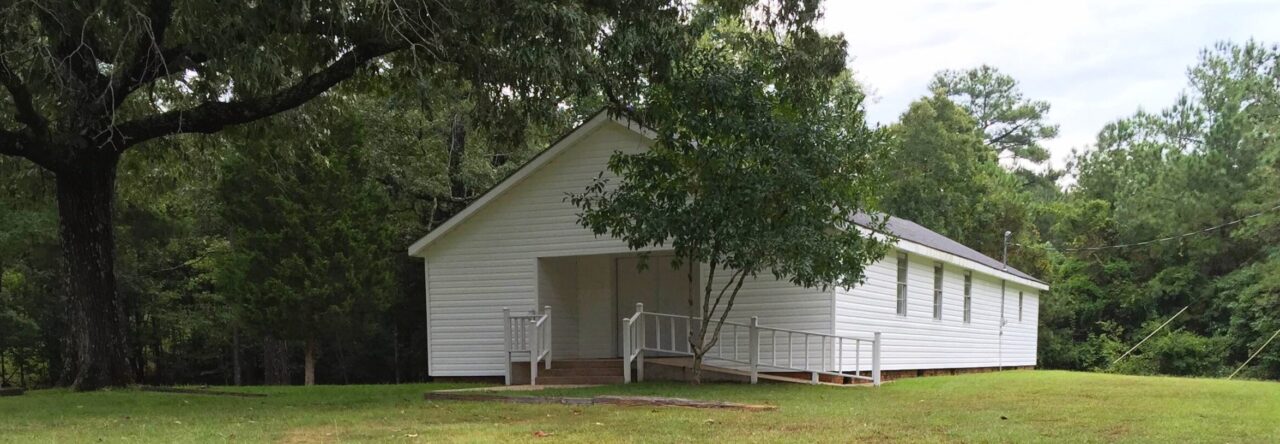Sometimes we fall into the trap that Paul warned against in his epistle to the church at Rome; we begin to “think of ourselves more highly that we ought to think” (Romans 12:3). His prescribed remedy for this prideful attitude was to “think soberly as God hath dealt to every man the measure of faith” (Romans 12:3b). We need to ensure that we think “soberly” – to be thoughtful in our actions and to always keep in remembrance who we truly are by nature.
I’ve heard many ministers in the past quip the profound statement: The best of men are only men at best. The psalmist placed the scriptural rubber stamp on this quote: “Every man in his best state is altogether vanity” (Psalm 39:5). On our best day here on this earth, we are just dust, destined to return to the dust from whence we came (Genesis 3:19). Thankfully the Lord is compassionate towards His children because “he knoweth our frame; he remembereth that we are but dust” (Psalm 103:14). God is longsuffering towards us because he understands our nature and fleshly warfare that we engage in on a daily basis. Without the quickening power of God in our lives, we would still be dead in trespasses and sins. So we have no ability to please God in and of ourselves, especially since “without faith it is impossible to please him” (Hebrews 11:6). Until we are given faith in the new birth and as a fruit of the Spirit, we have no ability to please God because we do not have faith.
But sometimes we forget our dustly, carnal frame and begin to think more highly of ourselves than we should. And we begin to think that we can solve problems ourselves or live our lives by relying on our own power or strength. We begin to “forget what manner of man we were” (James 1:24) before our quickening. But if we begin to develop too much confidence in our own strength or our own accomplishments or our own ability or intellect, we might have to go through the proverbial Nebuchadnezzar moment for God to drive us to our knees in humility.
In Daniel 4, Nebuchadnezzar looked out over all the kingdom of Babylon that God had seen fit to give him rule over, and he ascribed all the glory for its power, beauty, and majesty to himself, not to the Lord. “Is this not great Babylon, that I have built for the house of the kingdom by the might of MY power, and for the honor of MY majesty?” (Daniel 4:30). As a judgment against his pride and “unsober” mind, he was sent out of the palace in humiliation for possibly seven years and he ate grass like oxen, and his hairs were grown like eagles’ feathers, and his nails like birds’ claws. Nebuchadnezzar made the first-hand trip from the “penthouse to the outhouse”. But when his reason returned to him, he made one of the most glorifying statements of the sovereignty of God in the entire Bible at Daniel 4:34-35, but his conclusion for his whole experience was that “those that walk in pride he is able to abase” (Daniel 4:37).
Nebuchadnezzar had to be taught in graphic detail that “without me ye can do nothing” (John 15:5). Without the Lord’s blessings in our lives, we truly can do nothing at all! Every breath of life we have is ascribed to God because “he giveth to all life, and breath, and all things” (Acts 17:25). If we have good things in our lives, we must attribute those blessings to God because “every good gift and every perfect is from above, and cometh down from the Father of lights” (James 1:17). Any problems and maladies in our life are laid at the feet of our own carnality and sin and that we are inhabitants of a fallen, sinful world.
And if we believe that we are sufficient to live our own lives without God’s direction or providence or power, I would admonish you to “sober your thinking” and align your view of yourself as scripture present to us. We are but dust. But God saw fit to love certain clay vessels from before the foundation of the world. We are justly deserving of eternal wrath and separation from God but instead we have been given all spiritual blessings in heavenly places and indescribable riches as an heir of God’s kingdom. And the only reason we have these blessings is because of the grace of God and the sufficiency of Christ. We are not sufficient of ourselves to live godly lives or persevere to the end or gain wealth or a successful life or career. But when we understand that our sufficiency is not in ourselves, but our sufficiency is in our identity in Christ, we have a faith and boldness that we believe that we truly can do “all things through Christ which strengthens me”.
